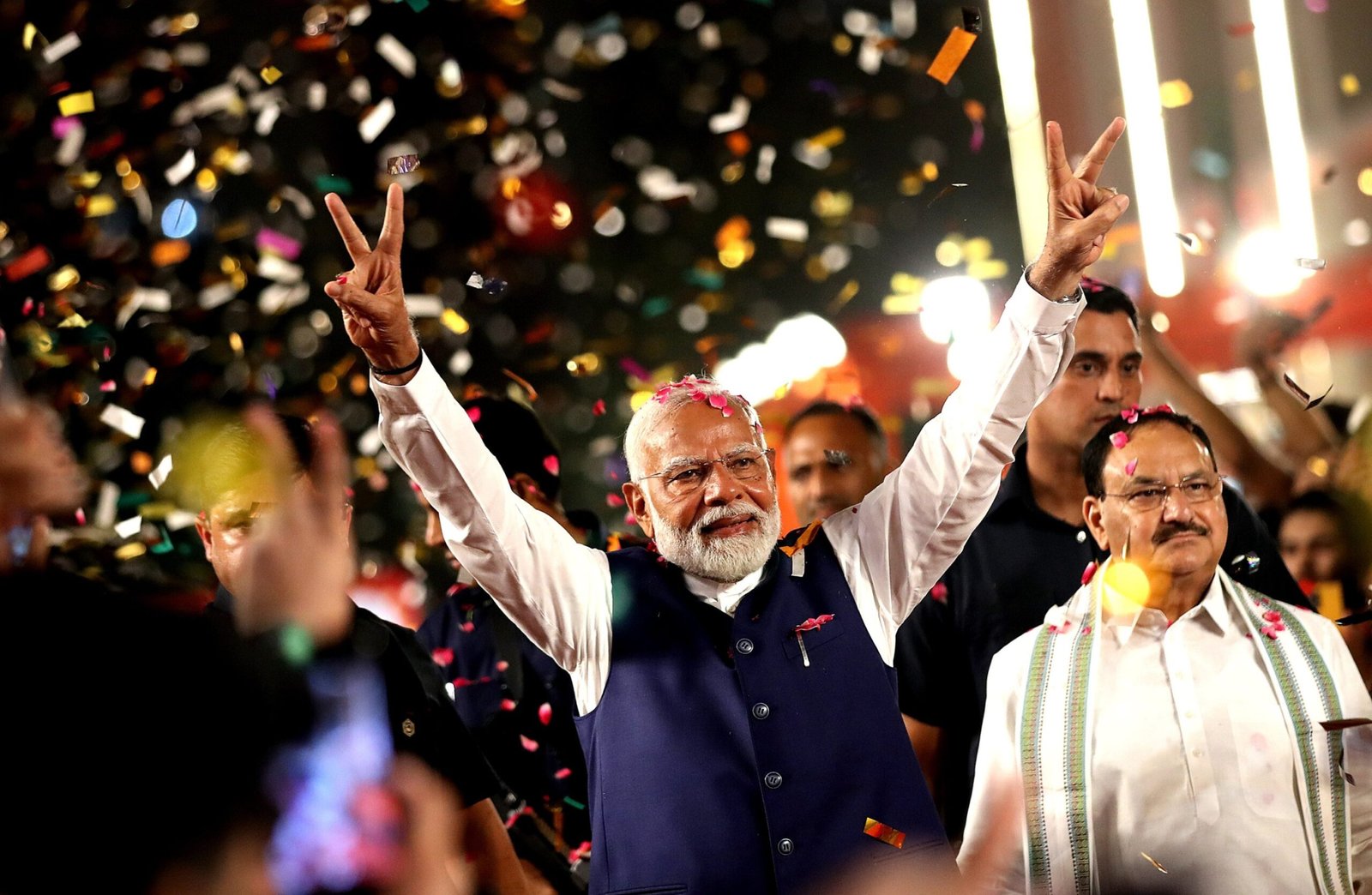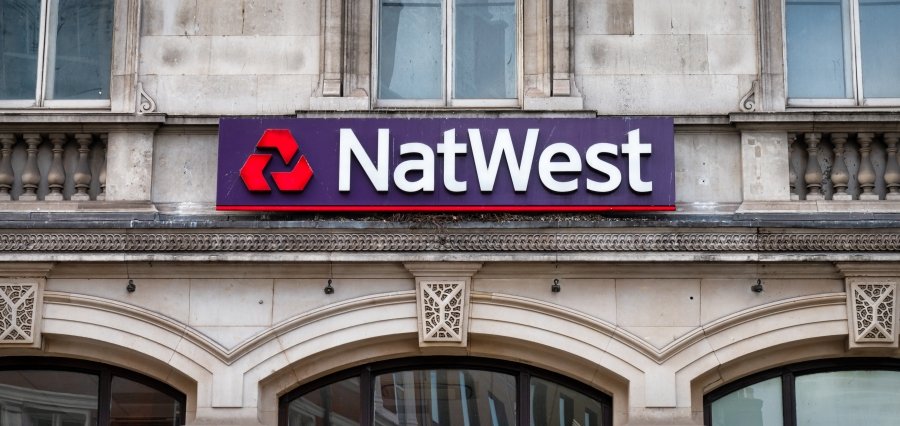Prime Minister Narendra Modi has declared victory for his alliance in India’s general election, asserting a mandate to advance his agenda. However, his party experienced a decline in support, compelling him to rely on coalition partners.
“This victory is a triumph for the world’s largest democracy,” Modi proclaimed at his party’s headquarters, emphasizing the faith Indian voters have shown in his party and the National Democratic Alliance coalition.
Official results from India’s Election Commission revealed that the NDA secured 294 seats, surpassing the 272-seat threshold for a majority but falling short of earlier projections.

For the first time since 2014, Modi’s Hindu nationalist Bharatiya Janata Party failed to secure a majority independently, winning 240 seats, significantly fewer than the 303 seats obtained in 2019.
Consequently, Modi now depends on the support of other parties within his coalition, a setback for the 73-year-old leader who anticipated a resounding victory. During the campaign, Modi had expressed confidence in winning 370 seats for his party and an additional 30 seats for his allies.
“Heavy reliance on coalition partners underscores the importance of acknowledging Indian voters’ concerns, particularly regarding employment and economic aspirations,” noted an editorial in the Times of India.
The Congress party, with 99 seats, improved its performance compared to the 52 seats won in 2019. Notable victories for its allies include
the Samajwadi Party’s 37 seats in Uttar Pradesh, a significant setback for the BJP, and the All India Trinamool Congress’s 29 seats in West Bengal.
The BJP’s diminished position signals a shift in dynamics, with smaller allies likely to play a more significant role in policymaking and government formation, observed Milan Vaishnav, director of the South Asia Program at the Carnegie Endowment for International Peace.
“This election punctures the myth of Prime Minister Modi’s invincibility. The electorate has signalled that this election is about more than just one individual,” remarked political commentator Pratap Bhanu Mehta in an article for The Indian Express.
Over 640 million votes were cast during the extensive six-week-long election, marking the world’s largest democratic exercise.
In light of the unexpected decline in BJP’s support, challengers asserted a victory of sorts, with the main opposition Congress party characterizing the election as a “moral and political setback” for Modi.
Congress party President Mallikarjun Kharge remarked, “This is a victory for the public and democracy.”
Despite the setback, Modi reaffirmed his commitment to fulfilling his election promise of elevating India’s economy to the world’s third-largest, enhancing defence production, generating employment opportunities for youth, boosting exports, and aiding farmers.
“This nation will witness a new era of transformative decisions. Modi guarantees this,” he asserted, speaking in the third person.
Many of the Hindu nationalist policies implemented over the past decade will persist.
Modi’s retention of power for a third term, following Jawaharlal Nehru, marks only the second instance in Indian history. Prior to Modi’s tenure, India had witnessed coalition governments for three decades.
Leaders from neighbouring countries, including Nepal and Bhutan, extended congratulations to Modi. At the same time, the White House praised India for its “vibrant democratic process.”
During his decade in power, Modi has reshaped India’s political landscape, propelling Hindu nationalism from a fringe ideology to the mainstream, albeit amid deep societal divisions.
Supporters laud him as a self-made, resolute leader who has bolstered India’s global stature. Critics argue that his Hindu-centric policies have fueled intolerance, exacerbating economic inequalities despite India’s rapid growth.
For individuals like Payal from Lucknow, the election spotlighted economic concerns and the plight of millions living in poverty.
“People are suffering, jobs are scarce, and many are struggling to make ends meet,” Payal expressed. “This election holds immense significance for us. If not now, then when?”
Rahul Gandhi, the prominent figure of the opposition Congress party, interpreted the election results as a message from the electorate.
“The poorest of this country have defended the constitution of India,” he declared at a news conference.
Throughout his first two terms, Modi’s popularity has eclipsed that of his party, transforming the parliamentary election into a quasi-presidential campaign, with the BJP relying heavily on his brand.
“Modi was not just the primary campaigner, but the singular face of this election,” observed Yamini Aiyar, a scholar of public policy.
Critics contend that under Modi’s governance, India’s democracy has faced mounting pressure, citing alleged strong-arm tactics against political adversaries, constraints on independent media, and suppression of dissent. The government refutes such allegations, asserting the flourishing state of democracy.
Despite economic growth, discontent persists. While stock markets soar to unprecedented heights, youth unemployment surges, leaving a large segment of the population excluded from the economic boom.
Initially, the BJP’s campaign focused on “Modi’s assurances,” touting economic and welfare achievements purportedly reducing poverty. Modi reiterated promises of India’s development by 2047 in rally after rally.
However, the campaign took a divisive turn, with Modi employing polarizing rhetoric targeting the Muslim minority, comprising 14% of the population, a strategy aimed at energizing his Hindu-majority base.
In response, the opposition INDIA alliance criticized Modi’s Hindu nationalist agenda, campaigning on issues of unemployment, inflation, and inequality.
“These concerns have struck a chord and made an impact,” remarked Aiyar, emphasizing the resonance of these issues in the public discourse.








